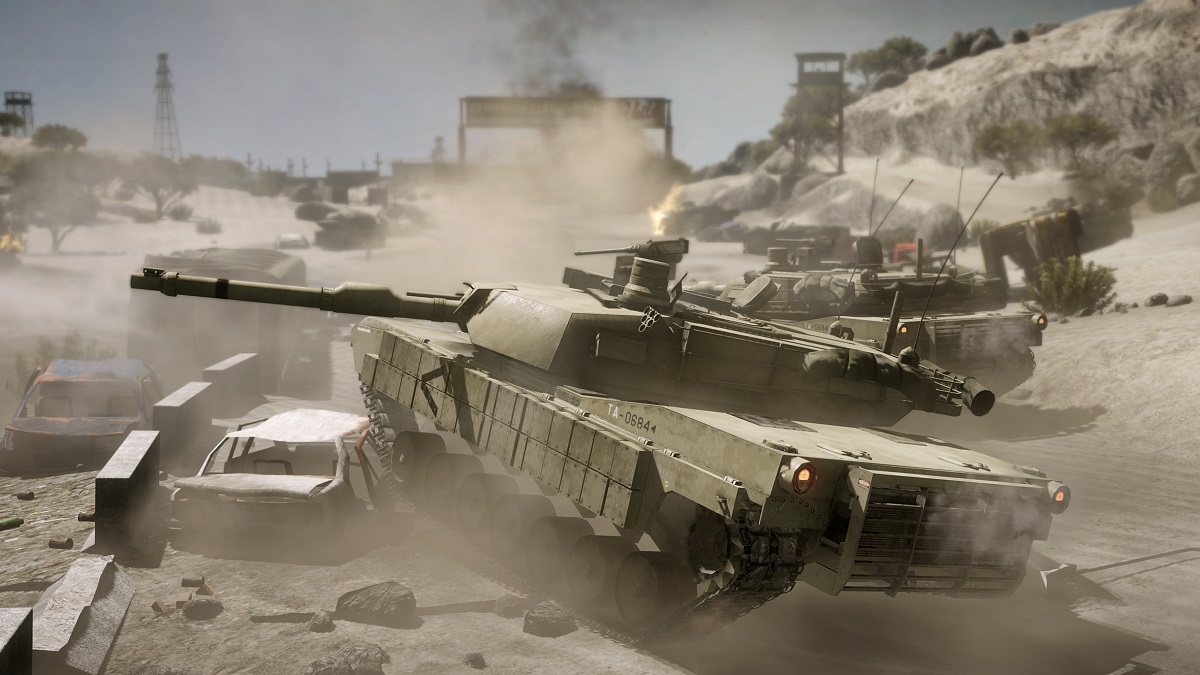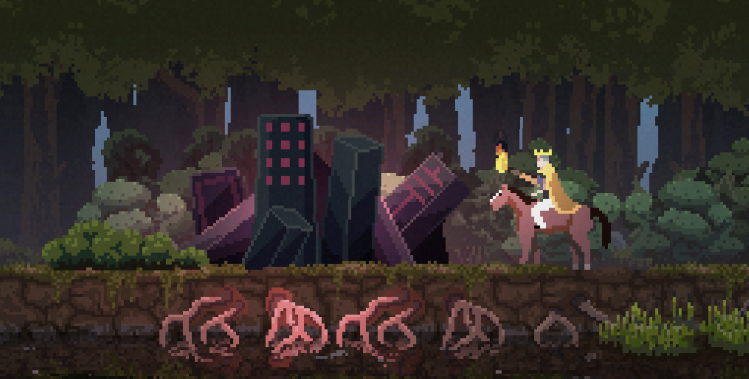One of the driving forces behind the rise of Battlefield and its development studio is leaving the blockbuster video game business to join the raucous indie scene.
Karl Magnus Troedsson has accepted a position — and is investing in — Raw Fury, the publisher of niche games such as Kingdom and Kathy Rain. Troedsson is leaving his position at giant gaming publisher EA as its vice president of group strategy and his over 15 year association with the DICE development house, where he helped Battlefield become a well-liked shooter series on PCs and an industry blockbuster on home consoles such as the PlayStation and the Xbox.
Troedsson started his career working on small games, such as Unique Development Studios’ Mall Maniacs in 1998. And now is the time to share his knowledge with game makers who could benefit from what he’s learned over his long career — and help foster the next wave of indies.

Above: Karl Magnus Troedsson
“I want to spend my time and energy helping small developers realize their dreams and to make sure innovative games successfully reach their potential,” Troedsson said in an email interview with GamesBeat. “I’ve been with DICE and EA for 15 years, and leaving was not an easy decision to make. It feels like I’m leaving my second family, and I’m fortunate to have worked with all the talented people at all the different studios and in EA. But I’m following my passion for smaller games, switching from big triple-A [the game industry term for blockbuster development] titles to nimble indie games. I started on very small games, then made the journey into the land of triple-A, and now want to find ways to utilize this experience to support developers who are embarking on, perhaps, similar journeys.
“I’m looking forward to switching gears to a more creative chaos of helping out small developers with anything they require support with.”
One idea that’s attracted Troedsson to the indie scene is how blockbusters and small games can influence one another.
“Obviously, gamers want both huge triple-A and niche games. And in many ways, I believe the development of these could cross-pollinate if we dared to step outside of our comfort zones,” he said. “Big developers could learn from the focus needed by indie developers, working under tight, creative constraints due the smaller budgets. And the indies should look at what the bigger teams are doing, learning to avoid known pitfalls. Before they know it, they might have a hit on their hands with increasing expectations on depth and breadth of the experience.”
You can see Troedsson’s interest in smaller games from what he’s into these days — the shooter Superhot, the madcap car-soccer Rocket League, the mysterious Firewatch, Hyper Light Drifter, and Raw Fury’s Kingdom — “which Steam tells me I’ve spent a manic 125 hours in,” he said.
Troedsson’s involvement with the indie scene started last year when he became a sponsor of Stugan, a nonprofit indie game incubator in Sweden. The idea to leave EA took root here — Stugan means “the cabin” in Swedish, and it’s located in the woods.
“Visiting the teams up in the deep forests of Sweden, where they spend two months jamming on their games, I felt a newfound passion for smaller games. It was extremely inspiring to meet all the driven individuals there, and I started thinking how I could help out further while doing something I really enjoyed,” he said.
Heat Signature is a game he’s been watching since before designer Tom Francis enrolled in Stugan, and it’s indie projects like this (in the video below) that drew Troedsson to Raw Fury.
Raw Fury also is the home of Gordon Van Dyke, an old colleague from DICE who worked with Troedsson on the Battlefield: Bad Company games and Battlefield 1943.
“The more they told me about what they were doing, I felt that we shared a love for niche game experiences, the same cultural values, respect for small developers, and a common opinion that there are new, innovative ways to publish games,” Troedsson said. “Fast forward a year and we’ve now decided to make this more than just a shared passion and for me to dedicate both my time and some personal funds to help further advance the Raw Fury culture and business.”
Raw Fury has Sweden in its blood, even before Troedsson signed up. It’s been a good place to make games for years, as the industry has seen with DICE, strategy studio Paradox Interactive, and Mojang with Minecraft. A variety of conditions contribute to this.

Above: Battlefield: Bad Company 2 holds a special place in Karl Magnus Troedsson’s heart.
“Sweden has been a hotbed for game development for many years, supported by several anecdotal factors like the early yet still active demo scene, the old concept of subsidized home computers, great broadband, and higher education in engineering, art, design, music, etc.,” Troedsson said. “The strong social security net in Sweden probably also helped daring new entrepreneurs make the decision to pursue their dreams of game development back when this wasn’t considered a real job.
“Maybe the bad weather during winter also contributes, great for sitting indoors two-thirds of the year to code and push pixels.
He thinks the Swedish model can work elsewhere in the world as well — but the biggest need is capital.
“But I believe we’re now entering another, even more positive phase. Talented individuals and teams have been around, but the one thing which has been scarcer is the access to seed capital. Seeing spearheading successes of various local companies like Mojang, King, and DICE, with trends like the democratization of game development by readily available game engines and middleware, instant global access to players, and scalable possibilities for success, the Swedish games industry is finally attracting serious investors from both local and international sources,” he said. “We still have some way to go getting developers and investors to talk the same language but these bridges are quickly being built since the will is now there.”

Above: Raw Fury is funding Kathy Rain studio Clifftop Games despite low sales.
That capital can come from big investors — or even small indies like Raw Fury. The publisher took the unconventional move earlier this year to continue funding the designer of Kathy Rain developer Clifftop Games even though the acclaimed adventure game wasn’t selling well — and this is a move that mattered to Troedsson: “Seeing how Raw Fury stepped up and supported Clifftop Games after the launch of Kathy Rain cemented my belief in the company. In my opinion, it really shows how much they value the partnerships they’ve established.”
Troedsson isn’t arrogant — he doesn’t see himself as coming down from Blockbuster Boulevard to the mean streets of the indie scene. He just wants to help those working on small games get a start in the industry, pass on what he’s learned, and get back to helping make games, not just deciding corporate strategy.
“Raw Fury is a small, entrepreneurial company, so I’m looking forward to getting my hands dirty and helping out with anything which needs doing. Titles don’t matter, only the work at hand and the games we’ve selected to help out with,” he said. “But I assume my experience from EA and DICE will add an ounce of long term, strategic thinking and some project management to the otherwise beautiful, creative chaos which is Raw Fury today.
“But to be clear, I’m not looking to change the overall focus or core beliefs of Raw Fury, we will continue working to make it the best possible partner for game developers out there.”

